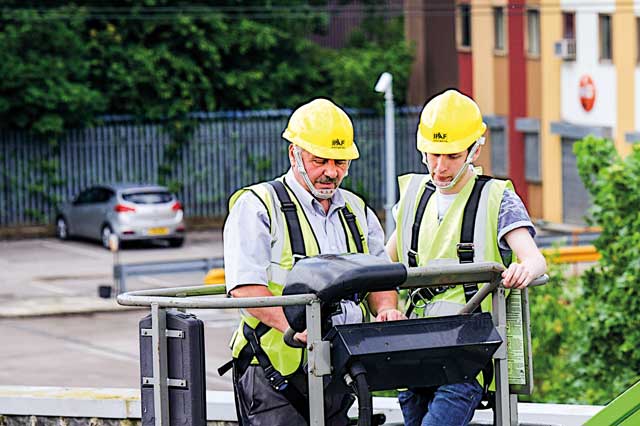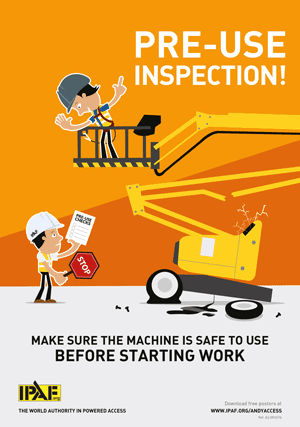 Falls from height are still the main cause of deaths in industry. Mobile elevating work platforms are specifically designed to conduct temporary work safely at height, says Andrew Delahunt, technical and safety director at the International Powered Access Federation.
Falls from height are still the main cause of deaths in industry. Mobile elevating work platforms are specifically designed to conduct temporary work safely at height, says Andrew Delahunt, technical and safety director at the International Powered Access Federation.
The new safety campaign for 2018-19 from IPAF reminds managers and operators conducting work at height using mobile elevating work platforms to plan ahead to prevent falls from the platform.
From IPAF’s accident data analysis,we have identified key contributing factors that can result in falls from a work platform. These can be prevented by proper planning and safely managing the use of MEWPs. We are highlighting these factors so managers and operators know the risks and know their responsibilities. IPAF works with all users and contractors of powered access equipment to serve and support their individual requirements.
Some of the key points to consider from the new safety campaign include:
Risky behaviour
Operators’ behaviour when using an elevating platform is usually positive as far as safety is concerned, but can be a contributing factor to falls from a work platform. Common risky behaviour includes over-reaching or leaning out of the platform, climbing on guardrails, tying gates open or overriding safety controls. To discourage such behaviour, managers should make sure operators are trained; that the right machine has been selected for the job; and that all work at height is adequately supervised.
Exiting at height
Stepping out of the platform immediately exposes the worker to falling from height, even if the intended destination is a solid structure. Remain inside the work platform at all times.
Setting up near other machinery or vehicles
MEWPs are frequently positioned close to moving machinery or vehicular traffic. A collision between a mobile platform and other plant or a road vehicle can be catastrophic. Always restrict movement of machinery and traffic near the platform. Conduct site planning and risk assessments prior to positioning the MEWP, and set up an exclusion zone and a traffic management plan wherever this is relevant.
 Mechanical failure
Mechanical failure
To avoid accidents through mechanical failure and to ensure MEWPs are maintained in safe working order – the owner’s legal obligation – owners should introduce a rigorous inspection, maintenance and examination regime. The inspection schedule includes: pre-use inspection; periodic inspections at three or six months; annual inspection. All inspections must be conducted by a competent person with adequate training and experience on that type of platform.
To support the new safety campaign IPAF provides downloadable ‘toolbox talks’ that can be used to give quick and simple safety briefings on sites or in breakrooms. Safety posters featuring the IPAF mascot Andy Access can be used to help reinforce these messages. These resources are provided free and can be downloaded from www.ipaf.org
For more on IPAF safety campaigns, legislation, standards and IPAF training, to review safety and technical guidance or to download Andy Access posters, please visit www.ipaf.org

